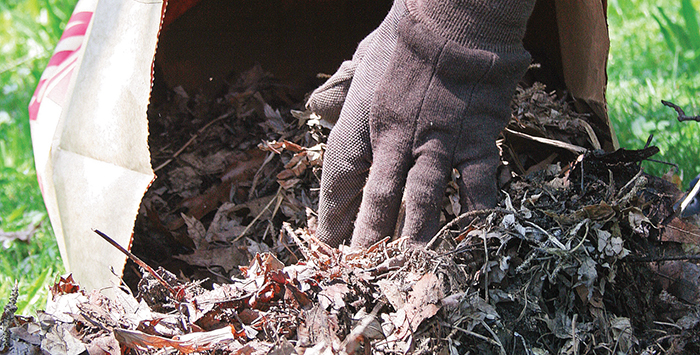By the time autumn hits full swing, many trees will have shed their leaves for the season, and the last vestiges of red, yellow and orange magic will have faded to brown. Raking, blowing and collecting leaves becomes the primary chores of lawn and yard maintenance, and presents most homeowners with large piles of gathered leaves to tend to.
It is impossible to count just how many leaves fall to the ground each year, or just how many pounds of leaves get collected curbside, but the numbers are substantial. Cleaning up leaves is considerable work, but not all of those leaves need to be carted away. In fact, there are several different uses of leaves that can be beneficial.
1. Spread leaves as a protective mulch to cover tender perennials or root crops/bulbs in the ground. The leaves will form a natural insulating cover that keeps the soil and the plants within a bit warmer over winter.
2. Create a pile of leaves that will break down and form a crumbly, compost-like material called leaf mold. Even though leaf mold may sound like a blight, it’s actually a good amendment to garden soil, improving its structure and ability to hold water. Leaf mold also attracts beneficial organisms that are vital in healthy soil.
3. Brown leaves can be added to green materials in compost piles to improve the health of the compost being formed. According to the healthy living resource Care2, the ideal ratio is 75 percent brown to 25 percent green materials in compost. Turn compost piles regularly to aerate them.
4. Store dried, mulched leaves in a dry spot so they can be used in the spring as a weed barrier for spring plantings. They will keep weeds at bay and help retain soil moisture to ensure small sprouts have the resources to grow.
5. Use shredded leaves as a lawn supplement. Pass a lawn mower over leaves left on the lawn to break them down into pieces too small to rake. This will help keep the lawn healthy throughout the winter without blocking out needed sunlight.
6. Bag dried leaves and pack them tightly together in cold areas of the home, such as basements or garages. They can act as added insulation. Bags of leaves also can be placed around planting containers to protect them from frost.
7. Gather a few of the best-looking leaves and preserve them. Use an iron on a low setting and press leaves between two pieces of waxed paper until the waxed paper seals together. Or use clear contact paper to achieve the same effect.
Fallen leaves can be used in many different ways throughout the year.
-Metro Creative Services


